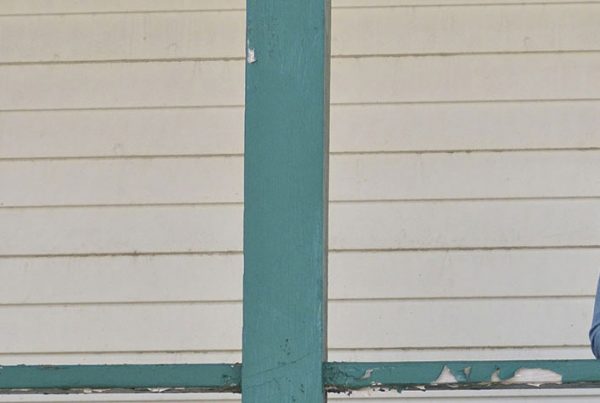On Saturday I had the opportunity to appear on Moody Radio’s morning show “Up for Debate.” The subject of the show was gun violence, and I had been invited because of an article I wrote for Her.meneutics on the topic. My discussion partners were quite a diverse mix! I was joined by the niece of Martin Luther King Jr., Alveda King, as well as Jim Atwood, who co-authored a book with Walter Brueggemann titled America and Its Guns, and a man who was formerly a pastor and is now a member of the Tea Party.
Our opinions ranged all over so I would encourage you to check it out. Unfortunately, I was not able to contribute as much as I would have liked, and there were a number of points I wanted to address but was not given the opportunity.
In particular, God has opened my eyes to a spiritual truth that brings me a lot of comfort, not only in the debate about guns but in many aspects of my life. It concerns the correct response to fear. As I mentioned in both my article and my time on the show, it seems like both sides of the debate are often driven by fear: fear of another mass shooting, fear of an intruder in one’s home, fear of the government taking our guns away, etc.
In response to these fears, Scripture repeatedly exhorts Christians to “not fear.” Over and over again we are told that we have nothing to fear and to not be afraid. Here are just a few of my favorites:
Matthew 10:28– And do not fear those who kill the body but cannot kill the soul.
Hebrews 13:6– So we can confidently say, “The Lord is my helper; I will not fear; what can man do to me?”
2 Timothy 1:7– For God gave us a spirit not of fear but of power and love and self-control.
One of the reasons that God is so firm about fear is that fear distorts truth. It blinds us to reality and prevents us from seeing clearly. Fear is therefore a tremendous asset for our Enemy; its provides Satan with a foothold into our hearts, minds, and churches.
That said, fear should be banished from discussions about gun violence–and a whole host of other discussions as well: parenting, politics, finances, singleness, education, and the list could go on. When any of these topics are guided by fear, the conclusions are more likely to be destructive than they are productive.
But this Scriptural instruction about fear begs an important question: Should we not care about our lives, our kids, our safety, or our futures? Does the command to “be not afraid” mean we can all sit around singing kumbaya and do nothing because Jesus is in control and everything’s gonna be alright?
I don’t think so. While Scripture instructs us not to fear, it counsels us with an equally important teaching: be wise.
Though we are to fear nothing, we are not relieved from making good decisions or being wise stewards of our responsibilities. In fact, most of the book of Proverbs is devoted to helping us live wisely.
There are a lot of verses in Scripture that speak about wisdom, but one of my very favorites is this:
Do not forsake wisdom, and she will protect you; love her, and she will watch over you. (Proverbs 4:6)
Don’t miss the wording there. In this verse, wisdom is framed almost as an antidote to fear. Rather than react to fear in brash and hazardous ways, let wisdom guard you.
I don’t think this verse is promising absolute prosperity for the wise. We do live in a fallen world where bad things happen for no discernible reason at all. Such tragedies are no one’s fault, but instead a symptom of living in a broken world.
However, there is an extent to which we can minimize the destruction in our lives by choosing wisely: I can’t prevent car accidents, but I can wear a seat belt; I can’t protect my son from all harm, but I can baby proof my house; I can’t predict whether I will lose my job, but I can save my money in case I do; I can’t avoid heart break, but I can guard my heart from foolish vulnerability.
When it comes to the gun debate, I have my own opinions about what it means to be wise rather than fearful. But I think this principle has applications in all areas of our lives. Wherever you feel especially fearful, name that fear as what it is. Don’t dress it up as godly concern or cold realism. Be honest about your fears so that you can submit them before the Lord and He can deal with them.
And after you have done that, consider instead what it means to be wise in that situation. For instance, I can’t protect my son from everything, and that fact scares me to death. But what I can do is parent him wisely. I can take precautions to keep him safe, I can teach him how to live, and I can pray for him. I can be a wise steward of his life, and then hand Him over to God. That is all God asks of me.
I wish God provided me with a nice and neat formula that could weed out the self-deception that so often masks my fears as righteousness. It’s easy to over-react in fear and call it wisdom. However, I am sobered by the reality that while I might fool others about my fears, and I can even fool myself, I cannot fool God. He knows when I am truly seeking Him and truly desiring wisdom. Fear masquerading as wisdom will bear the same fruits as bald-faced fear. So get real with yourself and let God work. It’s ok if you’re afraid, but God doesn’t want you to live there.






Great insights on fear and wisdom, Sharon. Another verse that came to mind is 1 John 4:18 – “perfect love drives out fear”. Is it too much to say that since the only source of perfect love is God and we now have God the Holy Spirit dwelling in us, then we can look to God to drive the fear out of us whenever we are tempted to go there?
Cheers,
Tim
Such a great reminder that we need to trust God in all things-especially our fear!